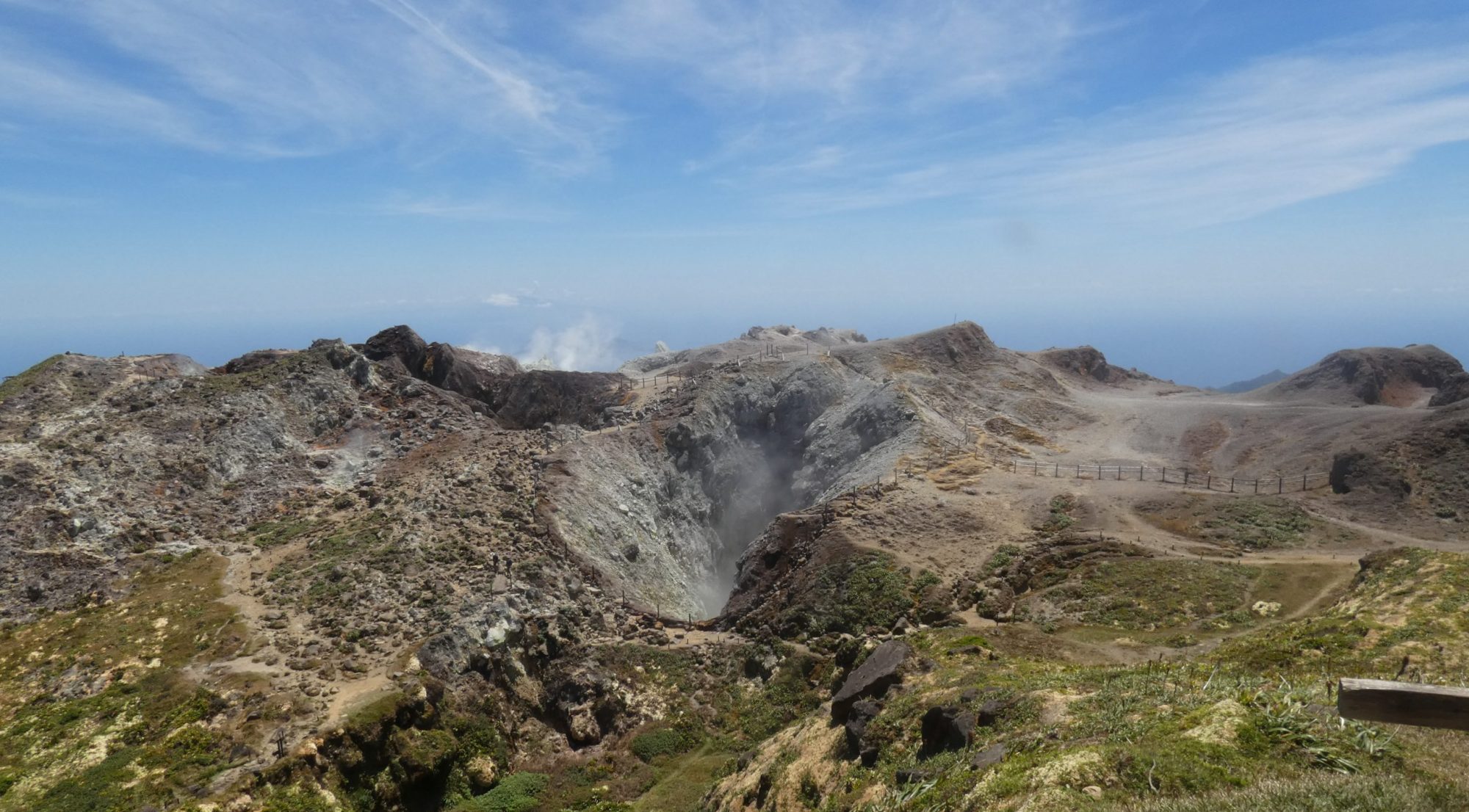The Multiannual Energy Programs (PPE in French) define the orientation and the methodology to be applied by territory to manage their energy production and consumption in a broad sense. They are declined differently from one geographically isolated region to another.
At the French level, the so-called continental metropolis PPE (excluding non-connected territories, Corsica and DROM-COM, therefore independent) includes sections relating[1] to:
- the security of the supply
- improving of energy efficiency and reducing energy consumption
- the development of the exploitation of renewable and recovered energies
- the balanced development of networks, storage, energy transformation and management of energy demand
- the clean mobility development strategy
- the preservation of consumer purchasing power and the competitiveness of energy prices
- the assessment of professional skills needs
Without predicting the provisions that will be taken by the Guadeloupe territory for the period 2023-2033 under the responsibility of Région Guadeloupe, one can expect to find these majors themes supplemented with the specific issues of a small tropical island territory without reservation of fossil fuels.
Guadeloupe’s PPE is currently being revised for the period 2023-2033. The public presentation on March 1st, 2023 made it possible to take stock of the preparation of this important document for the future supply of electrical and fossil energies in Guadeloupe. The document made available leaves you thinking [2]. A presentation in PowerPoint format does not in any way constitute a relevant working document. The schedule provides first the approval by the Regional Council in April 2023, followed by the validation of the General Directorate for Energy and Climate as well as by the French environmental authorities between the months of June and August 2023, then a public availability in October and the final adoption in November this year.
The small amount of information made available nevertheless makes it possible to list the weaknesses of the current vision of the PPE and the points to be worked on and to be strengthened urgently to avoid the catastrophe of the policies on energy and mobility imposed from Brussels and Paris and which do not seem adapted to the country of Guadeloupe.
The first question comes from the forecasts made on energy needs by 2040 with two scenarios that have a difference of 12% in 2028 and 24% in 2040. This difference indicates that according to the two hypotheses, the changes to meet Guadeloupe’s future energy needs could be of the order of a quarter of energy to be produced additionally. Finding the surfaces available to produce a quarter of additional energy is difficult on a small archipelagic territory like that of Guadeloupe where conflicts of use already exist between town planning, agriculture, the preservation of biodiversity and heritage, and protection of natural environments, sites and landscapes. Both models are based on two main parameters, the evolution of the population and the development of electric and plug-in hybrid vehicles.
We are not immune to a natural disaster that forces us to welcome 20 to 30,000 inhabitants from a neighbouring island. On the other hand, the imposed development of electric vehicles should not destabilize our electricity network. An adaptation of European measures must already be studied in order to avoid a social, economic and human disaster.
Tracks to explore
Only two existing endogenous resources are likely to meet the challenge of the need for energy with low environmental and climatic impact in the Guadeloupe archipelago: geothermal energy; and photovoltaic on all the roofs of buildings and individual houses. It is essential that these two mature sources of production be clearly put forward with support at different levels, training of actors and future actors, awareness of the population, and production and recycling of production tools, i.e. photovoltaic panels and geothermal power plants.
Wind energy
The proposals for revised objectives seem overestimated for all of the proposals, except for geothermal and solar photovoltaic. The recent conflicts around the extension of the Dadou farm at Petit-Canal show that the acceptance limit of the implementation of industrial-scale onshore wind farms in Guadeloupe has been reached. The proposed objectives are unrealistic and disconnected from the reality of the territory which cannot at the same time advocate the protection of biodiversity and develop a technology with a strong environmental impact.
Hydropower
Climate change (drying of the atmosphere in the tropical areas) and growing water needs for market gardening and tourism make water resources increasingly fragile and limit the annual production of hydropower. New means of production can be installed, but annual production is unlikely to increase. It is illusory to rely on this resource and to further alter the water cycle in Guadeloupe by installing new devices on the network of rivers and water reservoirs.
Biomass
The use of endogenous biomass for energy production is in direct conflict with the needs for (re)nourishment of the soil (mulching, compost) and the production of activated carbon, the needs of which are growing in a territory where a large part of water catchment areas are contaminated by Kepon, among other things. This implies that the 266 MW expected in 2033 will be of exogenous origin, they will negatively impact Guadeloupe’s carbon footprint and will not improve its energy independence.
Mobility and hydrogen
The current approach aims to make the Guadeloupe electricity network absorb a large part of the mobility needs. This approach is worrying given the high instability of the latter. The geographical distribution of the stable means of production (thermal and geothermal power plant) in the territory makes it very sensitive to natural risks, in particular flooding and marine submersion in the low and humid zone of Jarry.
Mobility, until recently was outside the electricity network, it would be wiser to design a network for recharging electric and hybrid vehicles that is autonomous and disconnected from the main network. The unveiled potential of hydrogen allows us to be confident in the strong growth of fuel cell mobility. This approach will prevent the establishment of monopolies and promote local solutions.
The role of the citizen
The good results of awareness campaigns on controlling consumption are proof of the importance of the citizen in solving the production-consumption equation. And not just as a player in controlling and reducing energy consumption. The conflict in Dadou at Petit-Canal around the installation of large wind turbines on agricultural land shows that no project can succeed without the acceptance of all. Participatory democracy tools must be put in place within the framework of this PPE so that the people of Guadeloupe can design their new ways of consuming, producing and moving around. These tools must include training, awareness, participation in studies and decision-making.
Concluding point
To conclude, it is surprising that the structure of the continental metropolitan PPE model does not already appear. Guadeloupe’s autonomous energy territory is not fully addressed. Only the forecasts of the values of the productive power are put forward with questions on the evaluation of the socio-economic impacts and future reflections on the organization of mobility. The effects on the environment, the carbon footprint, and the cost of energy and mobility do not seem to have been considered yet.
In the end, the voice of the people is missing, the will of Guadeloupeans, of citizens to create the energy of tomorrow. And this, with all the consequences in terms of pollution, space management, environment, development, innovation, risks and independence. I, therefore, call for a review of the calendar and the addition of a stage with an enlightened popular consultation.
Jean-François, Marc DORVILLE, PhD in Fluid mechanics
Geophysical consultant, business manager
Former lecturer at the University of Western Brittany and Antilles-Guyana
Former lecturer at the University of the West Indies, Mona campus and head of the group on Renewable Energies
Baie-Mahault, March 15th, 2023
[1] https://www.ecologie.gouv.fr/programmations-pluriannuelles-lenergie-ppe
[2] PPE 2023-2033: GENERAL PUBLIC RESTITUTION SEMINAR ON MARCH 1, 2023

